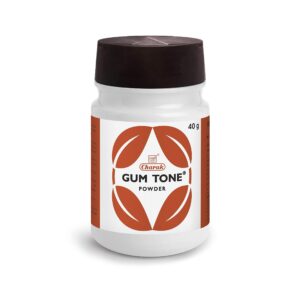AYURVEDIC + POWDER
Ayurvedic: Ayurvedic medicine, also known as Ayurveda, is a traditional system of medicine that originated in India thousands of years ago. It focuses on a holistic approach to health and uses a combination of herbal remedies, dietary guidelines, and lifestyle practices to promote overall well-being.
Ayurvedic medicines are made from natural ingredients such as herbs, plants, and minerals. They are commonly used to treat a variety of conditions including digestive disorders, respiratory problems, skin issues, hormonal imbalances, stress, and anxiety.
The mechanism of action of Ayurvedic medicines can vary depending on the specific herb or combination of herbs used. These medicines often work by balancing the body’s doshas, which are the energies believed to govern bodily functions. Ayurvedic medicines aim to restore balance and harmony within the body, promoting healing and well-being.
The dosage of Ayurvedic medicines is generally determined by a qualified Ayurvedic practitioner, as it can vary depending on the specific condition being treated, the person’s dosha constitution, and other individual factors. These medicines are typically available in various forms including powders, tablets, capsules, oils, and decoctions, and the dosage instructions are provided on the packaging.
While Ayurvedic medicines are generally considered safe when used appropriately, they can still have potential side effects. Some common side effects may include gastrointestinal disturbances, allergic reactions, and interactions with other medications. It is important to consult with a qualified Ayurvedic practitioner or a healthcare professional before starting any Ayurvedic treatment to ensure safe and effective use.
It’s worth noting that Ayurvedic medicines are not regulated as strictly as pharmaceutical drugs in some countries, which may lead to variations in quality and safety among different brands or suppliers. Therefore, it is important to choose reliable and reputable sources of Ayurvedic medicines to minimize the risk of side effects or adulteration.
Powder: Drug Name: Powder
Use: Powder is a stimulant drug that is commonly used as a recreational substance. It is often snorted, providing a quick and intense high. Powder is derived from the coca plant and contains the active ingredient cocaine. Although it has limited medical uses, it is mainly used illicitly for its euphoric effects.
Mechanism of Action: Powder acts as a potent stimulant on the central nervous system. It blocks the reuptake of neurotransmitters such as dopamine, serotonin, and norepinephrine, resulting in increased levels of these chemicals in the brain. This promotes feelings of pleasure, heightened alertness, and an intense burst of energy.
Dose: The dosage of Powder can vary significantly depending on the purity and individual tolerance. Typically, users start with small amounts, commonly referred to as a “line,” and gradually increase the dose to maintain desired effects. However, due to the potential for addiction and serious health risks, it is crucial to emphasize that using Powder recreationally is illegal and highly dangerous.
Side Effects: Powder use carries a range of potential side effects, which can vary based on the purity, amount consumed, and individual factors. Some common side effects include:
1. Increased heart rate and blood pressure: Powder stimulates the cardiovascular system, leading to an elevated heart rate and blood pressure. This can increase the risk of heart-related issues such as heart attack or stroke, especially in individuals with pre-existing conditions.
2. Nervous system effects: Powder can cause restlessness, tremors, and increased excitability. It may also lead to overstimulation, anxiety, paranoia, or even hallucinations.
3. Mental health effects: Prolonged use of Powder can lead to addiction, and users may experience symptoms of withdrawal when attempting to quit. Additionally, excessive and prolonged Powder use can contribute to mental health issues like depression, irritability, and mood swings.
4. Physical health complications: The prolonged use of Powder can lead to various physical health problems, such as damage to the nasal tissues (when snorted) or respiratory system, gastrointestinal issues, and weight loss.
5. Legal and social consequences: Powder is a controlled substance and its possession, sale, or use for non-medical purposes is illegal in most countries. This can result in legal consequences and damage personal relationships.
It is essential to note that the information provided here is for educational purposes only and is not a substitute for medical advice. If you or someone you know is struggling with substance abuse, please seek professional help from a healthcare provider or addiction specialist.

